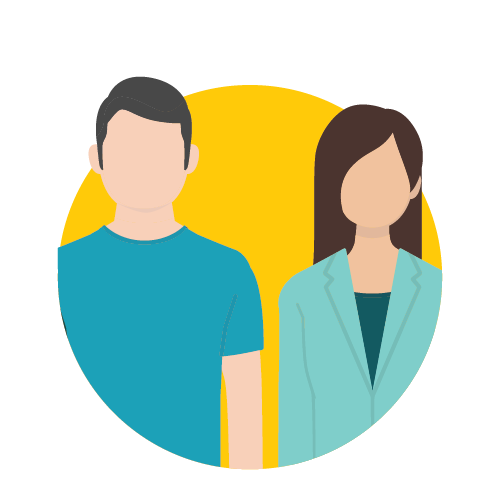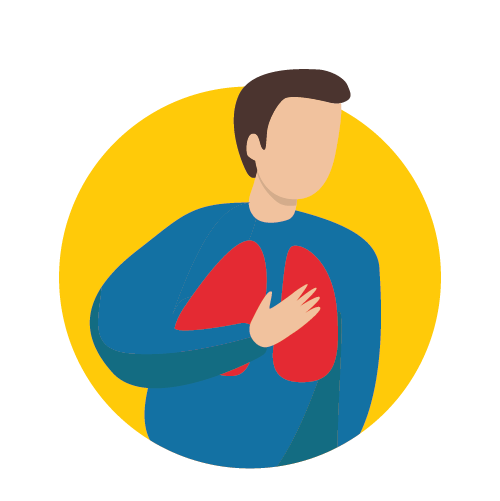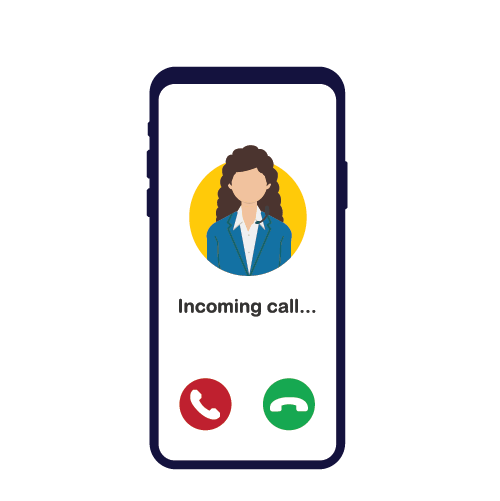Case investigations and contact tracing
Case investigation and contact tracing are important parts of how public health responds and stops disease outbreaks. People who have been in close contact with someone who has a communicable disease (a disease that can be spread from one person or animal to another) are more at risk of getting infected and making others sick. Contact tracing is how public health workers find the close contacts of someone who has a communicable disease.
Will the health department call me when I test positive for COVID-19?
It depends.
Not all test results are reported to the health department. Some healthcare providers are still required to report test results to the health department. At-home test results are not reported to the health department.
The provider or testing location will give you your test results. The health department may then try to contact you to conduct a case investigation. A public health worker may call you or send you a text or email. A case investigation is when a public health worker interviews you about possible exposures to COVID-19. The public health worker will ask you where you’ve been while you were infectious, when symptoms started, and who else may have been exposed. He or she will also ask you if you need help finding other resources like food or housing to help you be able to isolate.
Contact tracing happens after a case investigation is done. Contact tracing is how public health finds who else may have been exposed to a virus or disease and then contacts these people to let them know how long they should quarantine. Contact tracing also provides support to individuals who were exposed and who may need other services so they can quarantine.
Contact tracing process

1. Jane and Dan were at the same birthday party.

2. A few days later, Dan gets symptoms of COVID-19. He gets tested. Dan tests positive for COVID-19.

3. The health department works with Dan to find out the places he has been and who he has spent time with.

4. The health department calls Jane to tell her she may have been exposed to COVID-19. They tell her what she needs to do next.
Will the health department call me if I am exposed to COVID-19?
Public health workers from the health department try to contact everyone who tests positive for COVID-19 or who is exposed to someone with COVID-19. A public health worker may call you or send you a text or email letting you know you were exposed and should quarantine.
When there are a lot of people testing positive for COVID-19, public health resources get overwhelmed. It may take several days for the health department to contact a person who tested positive and do a case investigation. Health departments may need to stop doing contact tracing. If you know you were exposed to someone with COVID-19, it is critical that you take precautions and quarantine at home, even if the health department hasn’t contacted you yet. Do not wait for the health department to call you to take precautions.
Automated case investigation and contact tracing
The Utah Department of Health and Human Services and Utah’s local health departments use an automated case investigation and contact tracing program to help us reach people who have tested positive or been exposed to COVID-19 faster.
A public health worker will try to reach you by phone after you test positive for COVID-19 or if you are exposed to someone with COVID-19. You may get a phone call, text, or email. The text or email will come from Utah public health contact tracing teams. The public health worker may text you a link to a form which will ask you about where you may have been exposed to the virus and who else may be at risk for getting COVID-19. The text will also have a phone number you can call if you have questions. The URL for the form will include a “utah.gov” address. Our contact tracing teams will never ask you for your bank information, credit card numbers, or social security number.
The form and information you provide to the health department is stored on a secure database and is considered private health information. It will not be made public. Only the state or local health department in the county where you live will have access to this information. You may be asked to give the names and contact information for anyone who was in close contact with you while you were infectious. This information helps public health know who else may be at risk for getting sick and needs to take precautions. We will not share your name or contact information with these people. A text or email will then be sent to your close contacts letting them know how long to quarantine and when to get tested for COVID-19.
